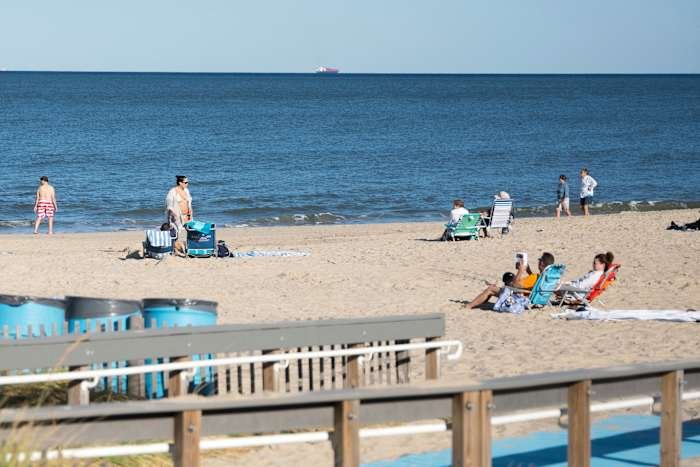As Labor Day weekend approaches, thousands of Americans—including many from Orlando—are planning one final summer getaway to the beach. But before you pack your bags and head to the coast, there’s a pressing concern to be aware of: unsafe levels of fecal contamination in the water at many popular beaches across the United States. These health advisories could put a real damper on your beach plans, especially for families and swimmers eager to enjoy the holiday weekend.
Why Are Beaches Facing Fecal Contamination?
Fecal contamination in coastal waters is nothing new, but it becomes a bigger issue during the busy summer season, when rainfall, stormwater runoff, and increased beach traffic all contribute to declining water quality. According to recent reports from environmental groups and state health departments, dozens of beaches nationwide have been flagged for high levels of bacteria commonly associated with fecal matter. These bacteria can cause gastrointestinal illness, skin rashes, and other health issues—especially in children, the elderly, and those with compromised immune systems.
Sources of fecal contamination typically include:
- Stormwater runoff after heavy rains, carrying waste from streets and yards into the ocean
- Sewage overflows from outdated or overwhelmed wastewater systems
- Animal waste from pets and wildlife near the shoreline
- Boating and marina activity leading to illegal dumping
With Hurricane season still underway and unpredictable Florida weather, these risks are particularly relevant for Orlando residents heading to either the Atlantic or Gulf coasts this weekend.
Which Beaches Are Most Affected?
While Orlando isn’t directly on the coast, it’s only a short drive from some of Florida’s most popular beaches. Many locals flock to destinations like Cocoa Beach, New Smyrna Beach, Daytona Beach, and Clearwater for their holiday getaways. Unfortunately, several of these locations have faced recent advisories due to high bacteria counts.
Recent testing in the weeks leading up to Labor Day has revealed unsafe swimming conditions at:
- Volusia County (Daytona and New Smyrna Beach): Multiple advisories issued this summer.
- Brevard County (Cocoa Beach): Elevated bacteria counts after storms.
- Pinellas County (Clearwater): Periodic warnings about water quality.
State agencies, including the Florida Department of Health, regularly test water quality and update the public on beach conditions. It’s crucial to check these resources before making your trip, as advisories can change quickly, especially after rain events.
Health Risks for Swimmers and Beachgoers
Swimming in contaminated water poses several health risks. The most common illnesses associated with exposure to fecal bacteria include:
- Stomach cramps, nausea, vomiting, and diarrhea
- Ear, eye, and respiratory infections
- Skin rashes or irritation
- More severe infections for people with weakened immune systems
Children are especially vulnerable because they tend to swallow more water and spend longer periods in the surf. Even wading or playing in shallow water can lead to accidental ingestion of harmful bacteria.
For Orlando families, this means that a planned day trip to the beach could result in more than just sandy feet and sunburn. Taking precautions—and staying informed—can help ensure your holiday doesn’t end with an unwanted trip to the doctor.
How to Stay Safe This Labor Day Weekend
With so many Orlando residents eager to escape the city heat, it’s important to take steps to protect yourself and your loved ones from waterborne illnesses. Here’s what you can do:
- Check water quality advisories before you go. Visit the Florida Healthy Beaches Program or local county health department websites for the latest updates.
- Avoid swimming after heavy rains, as bacteria levels are often highest then.
- Heed posted warning signs at the beach. If the water looks cloudy or has an unusual smell, stay out.
- Shower after swimming to rinse off any bacteria or pollutants.
- Discourage kids from swallowing water and keep an eye on them at all times.
- Consider alternative holiday plans like Orlando’s many splash pads, water parks, or resort pools, which are monitored for cleanliness.
What’s Being Done to Address the Problem?
Local and state agencies are investing in better stormwater management, upgrading sewage infrastructure, and increasing water testing frequency, especially during high-traffic periods like Labor Day. Environmental groups are also pushing for stricter regulations and public education campaigns aimed at reducing pollution and keeping beaches safe for everyone.
Orlando residents can help by
















